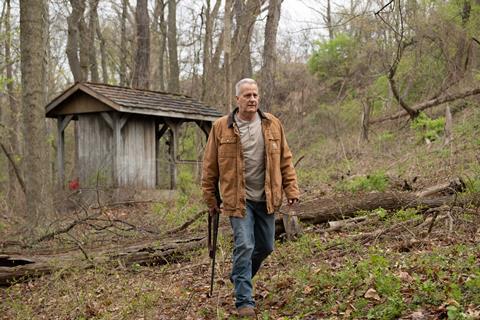“Intergenerational friction and grinding anti-glamour kept the episode’s head above water”

American Rust, Sky Atlantic
“The first episode was full of good people making bad choices. Whether they were coloured by addiction, unemployment, or past traumas, the lives of Buell’s locals moved (surprisingly) slowly – or at least, the show’s pacing made it feel that way. Yet, in snatched moments played masterfully, American Rust found flashes of brilliance…intergenerational friction and grinding anti-glamour kept the episode’s head above water (as Billy did Isaac’s – just about). Teetering on a knife-edge between inch-along pacing and a prestigious slow-burn, this pilot episode introduced a sprawling array of themes, characters and storylines. As such, big narrative promises have been made.”
Emily Watkins, The i
“For all of its boilerplate qualities, American Rust doesn’t stink as much as forecast. Partly this is because of the script, which – thanks to some good, understated dialogue – bucks the general mood , ie that this show was not so much written as collaged from odds and ends of other police procedurals. It’s also because Daniels and Tierney remind me so much of David Harbour and Winona Ryder in Stranger Things….Even so, it isn’t great.”
Stuart Jeffries, The Guardian
“The pacing is too slow, and wall-to-wall misery does not count as “prestige” TV. It’s a shame, because America’s industrial decline is an interesting topic. But Mare of Easttown got there first, and did it way better.”
Anita Singh, The Telegraph
“The result was an extremely slo-o-o-o-w Sunday evening, the opposite of the fast-whirring Disney clock. Time moved like a tortoise on a Zimmer. That’s not to say it wasn’t good. At times it definitely was, especially the performance from Jeff Daniels as grizzled police chief Del Harris, who suffered PTSD after serving in Iraq, and an even better one from Maura Tierney as Grace, an impoverished, attractive seamstress at risk of losing her trailer home and enjoying said police chief occasionally taking down her particulars.”
Carol Midgley, The Times
Doctor Who, BBC1
“Once again in this frustrating series, there were moments of brilliance buried in a pile of piffle. Far too much leaping around – I counted five planets across half-a-dozen different timelines – may have left viewers feeling queasy rather than entertained…These sequences were enormous fun – Indiana Jones meets Agatha Christie with a sci-fi twist. As the narrative became increasingly convoluted, I found myself longing for more interludes with the intrepid trio and fewer in space…There were some witty one-liners and fan-pleasing callbacks but way too much going on. It’s still 18 months before the mighty Russell T Davies returns as showrunner. Let’s hope he reintroduces stories with a beginning, a middle and an end. This felt like it was many middles, welded clumsily together. The plot ate itself, burped loudly, then ate that too.”
Michael Hogan, The Telegraph
“For Jodie Whittaker, current Keeper of the Sonic Screwdriver, that sums up her whole dilemma. She and writer Chris Chibnall are trying everything they can — resurrecting classic villains and blowing a fortune on special effects. The cast is starrier, the stakes are higher, the plots are more frenzied than ever … and yet it all stubbornly refuses to work. Partly, that’s because Chibnall still seems unsure how to write a female action hero. As the latest incarnation of the Doctor, Whittaker is little different from her predecessors. She has many of the mannerisms of David Tennant and Matt Smith, except with longer hair and a higher voice. She’s less irritable, it’s true, but that actually detracts from a well-loved persona.”
Christopher Stevens, Daily Mail
Womanhood, BBC2
“Apart from their universal cis-ness, the show’s presenters were diligently assembled to represent diverse generations, ethnicities, sexualities and areas of experience. While the stage was set for a balanced-ish foray into all things female (social media and sex work, motherhood and #MeToo, gender identity and activism, bingo!) Womanhood’s most compelling moments saw its presenters reappraising their own views along the way… In each case, and as Womanhood made clear, progress has been too little, too hard won, to leave any ally behind.”
Emily Watkins, The i





























No comments yet